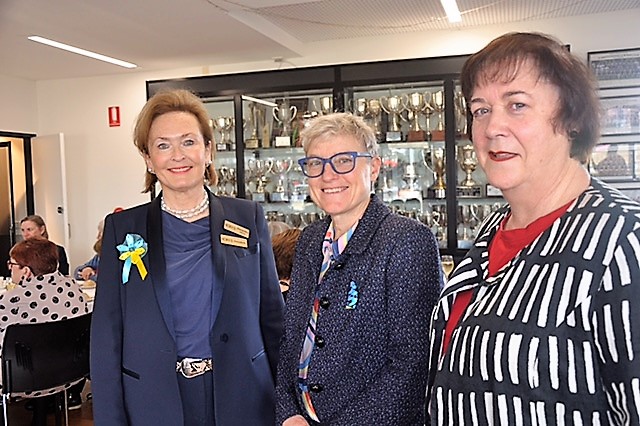Alexandra Jeffrey is president of the National Council of Women of Victoria, Geelong Branch and is a proud Bellarine Peninsula resident. She speaks of her love for both.
What’s your connection to the Bellarine Peninsula?
The opportunity to connect with the broader Geelong community whilst living and enjoying the amazing land/water connection of the Bellarine Peninsula is truly a gift.
What do you like about where you live?
To live on the Bellarine is to appreciate the many distinct areas of land/water area conservation opportunities.
We have the ability, before succumbing to overdevelopment, to seek out and implement sustainable land use, vis a vis wildlife corridors, and land trusts to preserve native flora and fauna.
What, if anything, would you change about where you live?
To see what I call mindful, sustainable land use in whatever housing developments eventuate on the Bellarine and interaction and working with the traditional custodians of land/water, the Wadawurrung people is of most importance to me and I believe, the community at large.
Where is your favourite local place to spend time?
One of the best things about living on the Bellarine is its proximity to the bay as well as to the ocean. Walking along Ocean Grove beach towards Barwon Heads is a favourite place in which to spend time, with the added benefits of good exercise and fresh sea air.
Tell us something people would be surprised to know about you.
People would be surprised to know that, as an Australian American, born in San Francisco, California, I spent half of my first 20 years in Far East Asia, returned to the US to attend university and finished my undergraduate degree at the University of London, studying social policy and education.
As a teacher, with a Masters of Science in Education, Curriculum and Instruction, I am most interested in literacy based cross curriculum instruction, heavily weighted in early explicit phonetic instruction within a rich literature base. I am passionate about early literacy as reading and writing ability is key to life skills and success.
Tell us a bit about the National Council of Women of Victoria, Geelong Branch.
The NCWV Geelong Regional Branch was started in 1944 by Geelong Mayoress Bessie Wallace. NCWV has served the Geelong community for 78 years and was notable for getting women considered for jury duty service in 1966. This year, our priority items are:
* Economic security and access to living wage
* Increase public housing for homeless women (women over 55 make up one of the largest groups requiring affordable housing)
* Women’s health – equity to and access to good medical care
* Sex trafficking
* Promoting STEM in primary schools
Each year we have an outside meeting, where we visit a local organisation and learn about its work. Funds raised are frequently directed to that organisation. Visits in recent years have been to Cottage by the Sea, the Mission for Seafarers, Geelong Art gallery, Foundation 61 (a residential centre for drug rehabilitation) and The Heritage Centre (Geelong Library) where NCWV archives are stored.
This past year has seen the impacts of COVID-19 on the Geelong community particularly in regards to food insecurity. In response to this community need, the Geelong Branch donated $1000 to the Christ Church food programme serving the homeless and families in need. In addition, responding to the women, children and soldiers injured and displaced by war in Ukraine, at our 76th Annual Luncheon, raffle fund of $1000 was donated to the Ukrainian Women’s Association of Victoria for much needed medical supplies.
We participate in the annual May Forum. This year’s topic was STEM: Supporting & Encouraging Women and Girls Participation in all Sectors of Science, Technology ,Engineering, and Mathematics. The Geelong Branch has supported Geelong schools to participate in the My Vote, My Voice programme, where students are given the opportunity to debate set topics in the Legislative Council of the Victorian Parliament. In addition, the Geelong Branch supports North Geelong Secondary College by awarding two $250 bursaries to students who show the most effort and progress in the literacy sphere of English as a second language.









